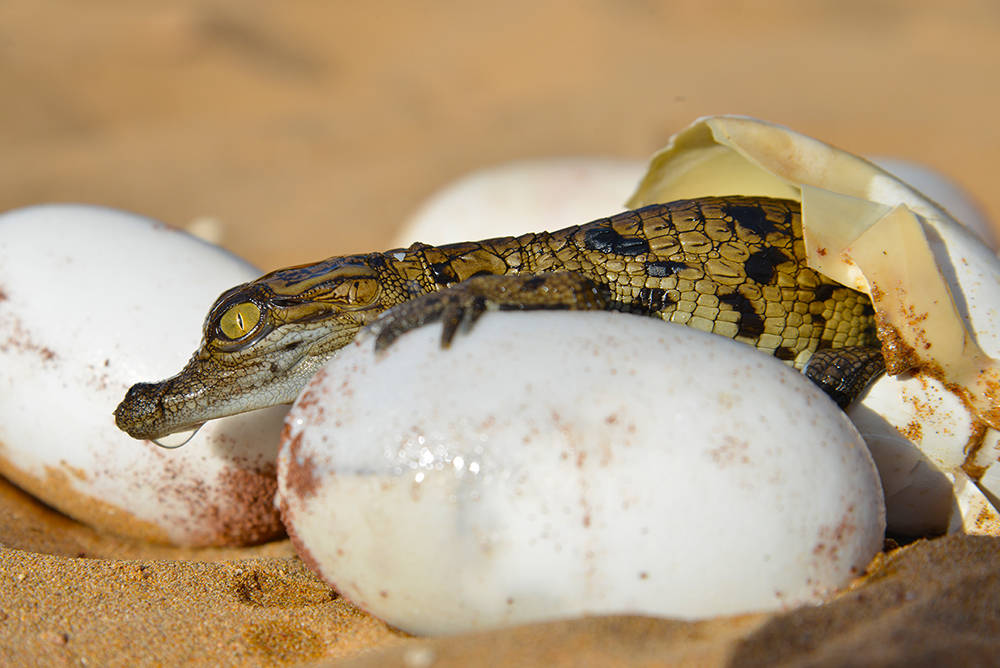Since 2002, the American crocodile (Crocodylus acutus) lived alone in captivity in Parque Reptilandia, a wildlife park in Costa Rica.
More than a decade later, in 2018, her keepers found a clutch of 14 eggs in her enclosure – seven of which appeared to be fertile.
The seven eggs were artificially incubated, but ultimately failed to hatch.
However, it was found that one contained a stillborn, but fully formed crocodile foetus.
DNA tests were conducted to confirm that the female had reproduced alone, through the process of parthenogenesis.
This past week, the research was published in the journal Biology Letters, and the findings reveal that no paternal alleles were present in the DNA of the foetus, confirming that no male was involved in the creation of the eggs.
Furthermore, tissue samples taken from the foetus’s heart and the shed skin of the mother revealed a 99.9% match – evidence that genetic information had been provided entirely by the mother.
The process of parthenogenesis is common in invertebrates such as ants and bees, and has been observed in captive snakes, sharks, and even birds, but until now there was no evidence that crocodiles were capable of this form of reproduction.
Warren Booth, an entomologist at Virginia Tech in the US and the lead author of the study explained that parthenogenesis is possible in some species due to the lack of a mechanism known as “genomic imprinting.”
“I predicted that we’d find it in crocodiles for a long time but we just haven’t had the samples.”
In the study, Booth wrote that it was “disappointing” that the egg failed to hatch but said that abnormalities were common in offspring born through this process, due to the inherent lack of genetic diversity.
The confirmation of this trait in crocodiles, alongside its presence in birds and other reptiles has led scientists to hypothesize that the prehistoric, shared ancestors of these species might have also been capable of reproducing this way.
Furthermore, this suggests the possibility that prehistoric reptiles such as dinosaurs and pterosaurs were capable of reproducing without males, too.
Warren Booth was very aware of the Jurassic Park-like implications of his research.
“You wouldn’t believe how many times people send me memes of Jeff Goldblum saying, ‘life finds a way.’”






